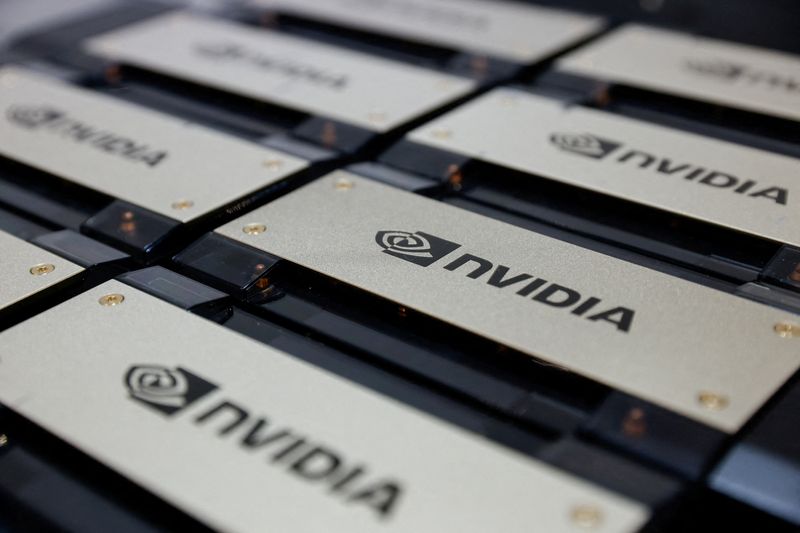Morgan Stanley (NYSE:MS) analysts reassigned a Top Pick rating for Nvidia (NASDAQ:NVDA) stock on Wednesday after the chipmaker’s shares fell sharply amid a broader market sell-off the previous day.
NVDA tumbled 7% on Tuesday to $103.73, representing its lowest closing price since May. Other chip stocks followed, with the iShares Semiconductor ETF (NASDAQ:SOXX) losing 3.6% on the day.
Morgan Stanley issued no changes to their Nvidia estimates or price target, but noted that the sell-off “presents a good entry point as we continue to hear strong data points short term and long term, with overblown competitive concerns.”
Key concerns contributing to the sell-off include customer capital spending budgets, competitive dynamics, export controls, and supply chain issues.
While the bank’s analysts acknowledge these challenges, they believe they will diminish over time. For instance, customer spending on AI infrastructure has been non-linear due to space and power constraints, yet the demand for Nvidia’s GPUs remains strong. The resilience of Nvidia’s H100 GPUs and the upcoming Blackwell series “makes those spending concerns seem premature,” analysts noted.
Competition from companies like Amazon (NASDAQ:AMZN), Apple (NASDAQ:AAPL), and AMD (NASDAQ:AMD) has also pressured Nvidia's stock. However, Nvidia's central position in the AI market and its ability to attract customers back from custom silicon alternatives highlight its enduring competitive edge.
“This is a large market and is not going to be served by a single NVIDIA card, but we are hearing multiple instances of customers who have invested in custom silicon or alternatives coming back to NVIDIA for upside,” analysts said.
For export control concerns, particularly those concerning China, analysts said that while there are risks related to geopolitical factors, Nvidia’s minimal trailing revenue from China reduces potential impacts. Furthermore, the adaptability of Nvidia’s H20 product to meet export requirements ensures continued market presence despite regulatory hurdles.
Overall, the Wall Street giant maintains a positive outlook for Nvidia stock, chiefly driven by robust demand indicators and strong customer enthusiasm for the Blackwell GPUs.
“Visibility will actually increase as demand moves from Hopper to Blackwell, as the constraint will shift back to silicon; H100 lead times are short, but H200 lead times are already long, and Blackwell should be even longer,” analysts continued.
With a valuation that appears “much more reasonable than a few weeks ago,” they believe the market is “taking a very glass half-empty view of some of the hyperscale comments, where there is a clear desire on the part of customers to continue to commit resources to developing multi modal generative AI.”
